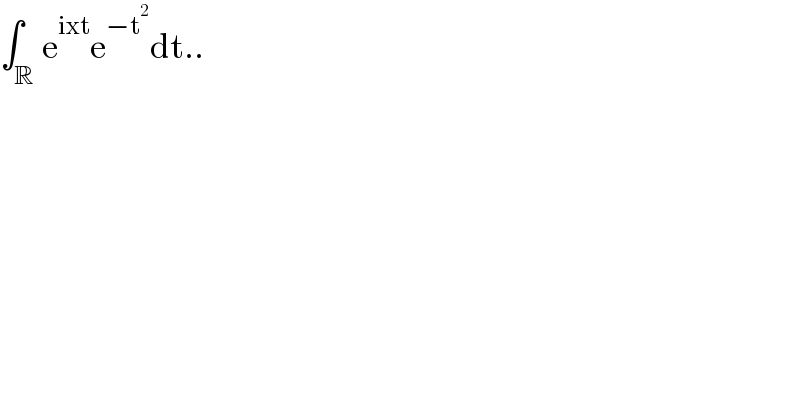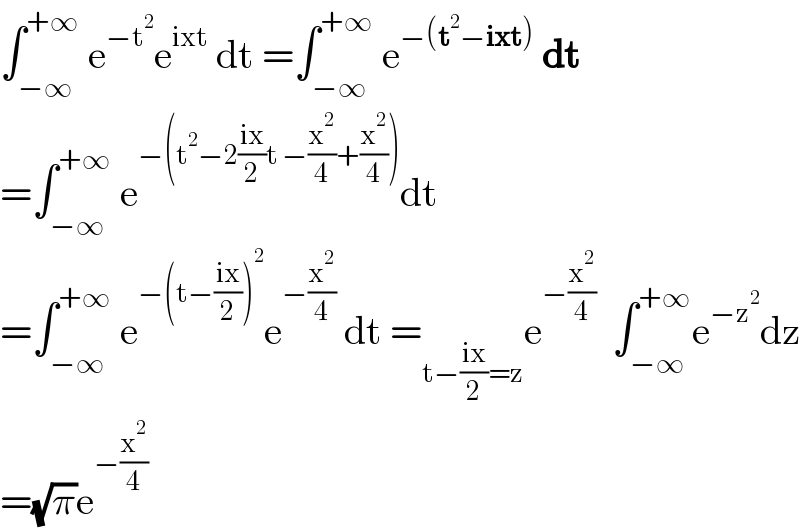
Question and Answers Forum
Question Number 147166 by puissant last updated on 18/Jul/21

Answered by mathmax by abdo last updated on 18/Jul/21

Commented by puissant last updated on 18/Jul/21

Commented by Kamel last updated on 18/Jul/21

Commented by mathmax by abdo last updated on 18/Jul/21

Answered by Kamel last updated on 18/Jul/21

